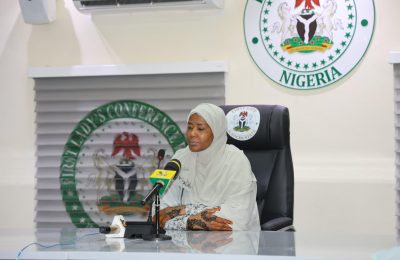
The largest Insecticide-Treated Nets (ITNs) distribution campaign has just been successfully completed in Kano State, Northern Nigeria, with the support of the Global Fund to Fight AIDS, Tuberculosis and Malaria. In total, more than 8.8 million mosquito nets have been distributed to nearly 17 million residents of Kano State in Nigeria to protect families from malaria.
Across Kano State, for a period of two weeks, thousands of trained volunteers went door-to-door to distribute mosquito nets to more than 3 million households, resorting to various transportation means, including donkeys and camels, to reach remote areas. One mosquito net was delivered to every two people in a household, in compliance with the World Health Organization’s requirements.

“If you are fighting malaria in Nigeria and Kano is not in the plan, it is a waste of time,” said John Ocholi, Campaign Manager for the Kano ITN Campaign. “More than twenty thousand people were mobilized – from the government, traditional rulers, religious leaders to community volunteers – to conduct this massive operation. We are very pleased by the outcome, and we thank our partners for supporting Nigeria’s goal to defeat malaria.”
Each volunteer is trained and handed a mobile device with an app that allows them to enter records of the number of nets distributed per household, the coordinates of the area, and the names of the recipients, often the household head. The data are uploaded to a central database, which allowed for everyday tracking of the number of nets distributed for the day, absentees, and locations covered.
“There is real-time tracking and monitoring of all data in the field,” said Babasoji Asuni, ICT Officer at Catholic Relief Services. “For a mass campaign like this one, this technology is crucial to help identify areas where there are issues that deserve immediate attention while the campaign is underway and improve operational efficiencies and coverage.”
The distribution campaign was implemented by Society for Family Health (SFH), in collaboration with the Kano state government, the National Malaria Elimination Program (NMEP) and Catholic Relief Services (CRS).
“Our goal is to increase net coverage by providing mosquito nets to every household to protect them from malaria,” said Dr Perpetua Uhomoibhi, Director and National Coordinator at the National Malaria Elimination Programme (NMEP). “The result of this campaign is a great example of how global health partners can achieve remarkable impact. By working together, we can scale up our efforts to reduce the burden of malaria in endemic countries and save more lives.”
With an estimated 228 million cases in 2020, the WHO African Region accounted for about 95% of malaria cases, with Nigeria alone being responsible for 27%. The Global Fund has invested up to US$404 million in malaria grants in Nigeria for the period 2021-2023. The funding supports the country’s goal to reduce the malaria burden to pre-elimination levels and significantly lower malaria-related deaths.
“Providing mosquito nets as a vector control strategy to protect families from malaria has proven to be effective in reducing the number of severe malaria cases and malaria-related deaths, especially for children and pregnant women who are the most vulnerable to the disease,” said Maria Kirova, Head of High Impact Africa Department at the Global Fund. “Today, we celebrate this remarkable achievement and thank the government of Nigeria, the community health workers and all our global health partners for their commitment.”
The Global Fund provides 63% of all international financing for malaria programs and has invested more than US$16.4 billion in malaria control programs as of June 2002. In countries where the Global Fund invests, malaria deaths have dropped by 26% since the Global Fund was founded in 2002. Without these interventions, malaria deaths would have increased by 84% over the same period.
ALSO READ FROM NIGERIAN TRIBUNE







